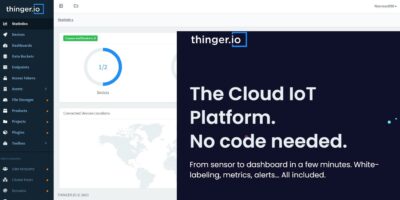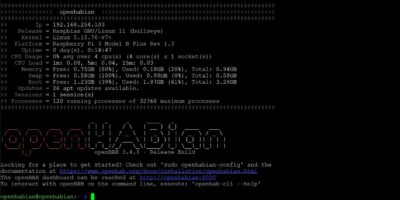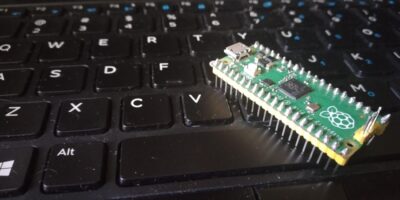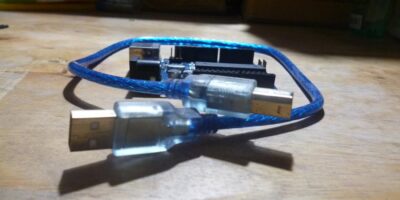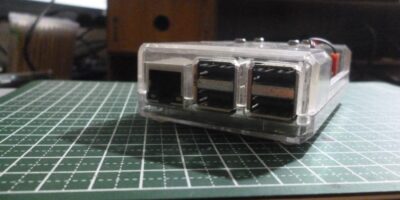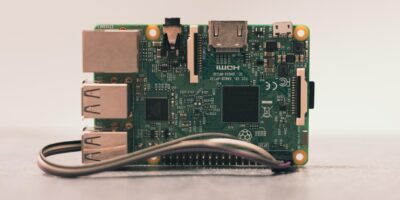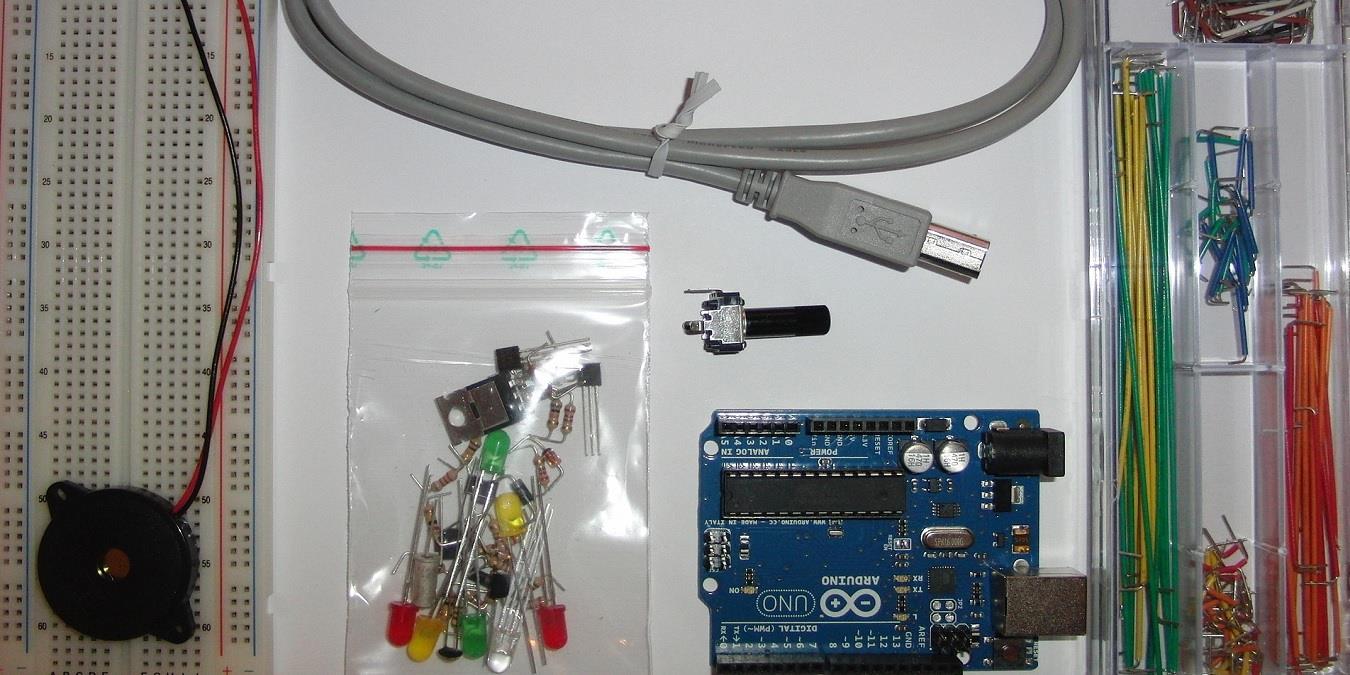
Arduino starter kits save developers time and money with cut and paste components. Most kits are designed for absolute beginners but support advanced projects with circuit flash cards. If you’re considering buying one, read our comparison of the best kits that you can get online. We will examine each one of them and suggest what level of users would find them more appropriate.
How to Consider an Arduino Starter Kit
As a minimum, a good starter kit should consist of an Arduino controller board, USB cables, breadboard, solid core jumper wires (the more the better), potentiometers, an alphanumeric LCD, LEDs of different colors, a variety of sensors, transistors, resistors, capacitors, DC motors, and push buttons.
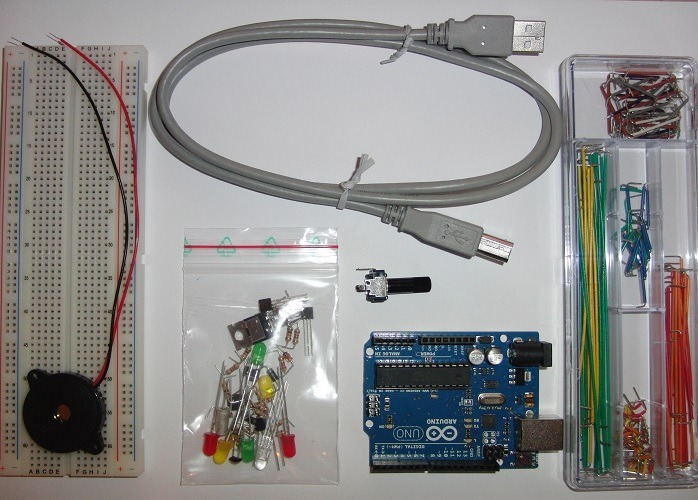
While there are many desirable Arduino kits that meet this criterion, their usefulness depends on more than the diversity. Many of these components are easily replaceable and can be found online cheaply. The ones we will review are quite well known and widely available with popular ecommerce websites.
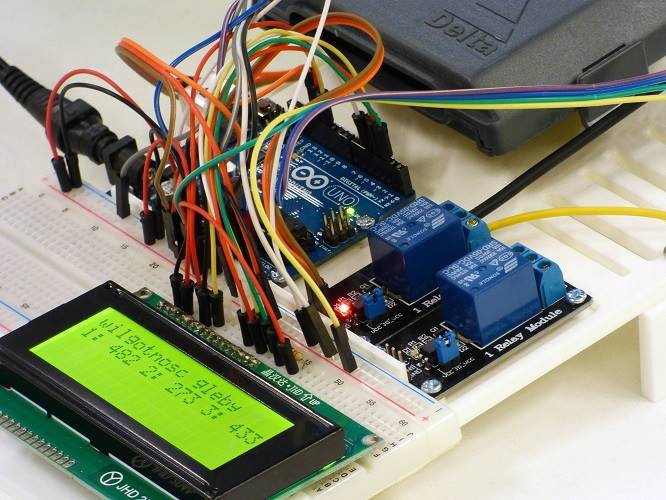
Another main criterion we used was whether the Arduino starter kit has ready-to-download comprehensive online materials. This is a must, because while working, you need to know everything about the kits in plain English. Even a novice with no experience in electronics and programming should be able to follow the online materials to learn Arduino on their own.
Here are our recommended best Arduino starter kits:
1. Elegoo Uno R3: The Most Complete Starter Kit
Elegoo is one of the best names in Arduino starter kits. If you’re going to work with an Uno board, you should consider their “most complete starter kit for Uno R3.” At less than $50, it brings over 200 pieces of 63 components (some of them mentioned below), making it excellent value for the money.
- Uno R3 board which is further compatible with Mega and Nano
- 5 pc. LED of different colors
- 5 pc. ceramic capacitors, 2 pc. photoresistors, 5 pc. NPN transistors
- 1 pc. seven-segment display and four-segment display
- Temperature sensors and buzzers
- 1 pc. joystick and keypad modules, 1 pc. LCD module
- 20 pc. female-to-male DuPont wires
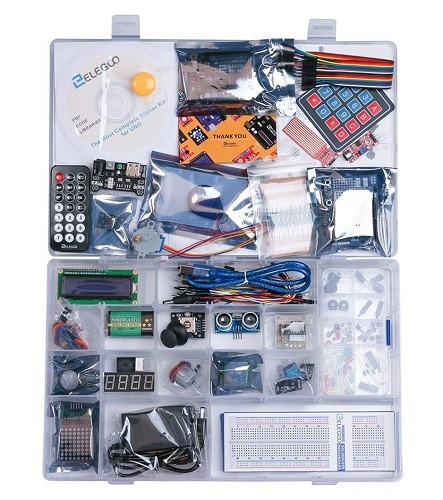
The best thing about the Elegoo kit is the availability of plenty of project walkthroughs online. The reading materials are 400 MB in size and range from a packing list to 25 modules for learning and the use of all modules for a variety of projects. With fully-colored connection schematics. circuit designs and explanations, you have enough reading material to tinker away.
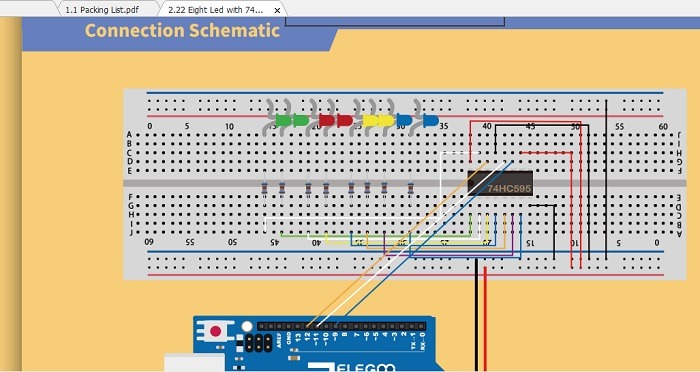
There are no missing or non-functioning parts in the Elegoo Uno R3 Most Complete Starter kit, and all the items are packed neatly. If you’re an absolute beginner in the world of Arduino, this is one kit that we will surely recommend.
2. Keyestudio Mega 2560 Starter Kit
For the next level of hobbyist that wants to work with Mega boards, Keyestudio Mega 2560 starter kit will absolutely fit the bill. Costing less than $70, it comes with a grand total of 32 exciting, included projects and covers almost all the components in previous recommendation. The build quality is premium grade, and there is simply so much under the hood that it’s impossible to be unimpressed.
The Mega 2560 Starter Kit also includes some premium components such as RFID modules, joystick module, flame sensors, humidity sensors, analog gas sensor, PIR motion sensor, ADXL345 three-axis acceleration module, 30 jumper wires, and 10 DuPont connector wires. All of them assembled over a 830-hole breadboard.
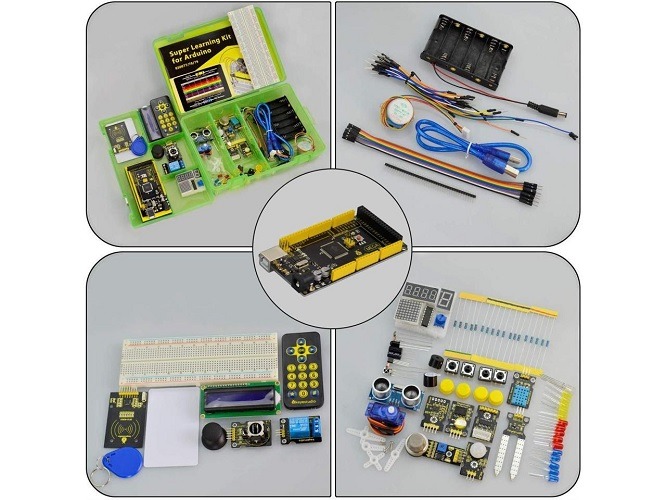
The Keyestudio official site has a comprehensive Wiki tutorial page as well as a comprehensive download resources section for robotics projects. It consists of ready-made examples for many robotic cars, so this kit is highly recommended for college students who want to experiment with robotics.
All the learning material you would need is right there. Keyestudio has comprehensively tested its components to ensure your compiled code does not show errors. This is one starter kit we recommend for both beginning and intermediate Arduino learners.
3. Osoyoo Arduino Advanced Learning Kit
This one is for the serious Arduino enthusiasts. If you can’t decide which board to work on, Osoyoo advanced Arduino kit gives you a dual choice of both Uno and Mega 2560 boards which are included. Apart from the regular high-build components, you get an infra-red remote controller and receiver, a 2-channel relay module, jumper wires, an acrylic test stand, an 8×8 LED matrix, sound detector, resistors package, and an array of sensors. When it comes to the most premium components you need, Osoyoo should definitely be considered.
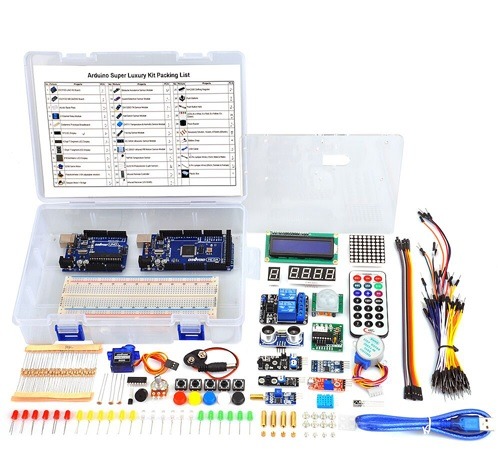
As for the learning, the official website has you entirely covered for a variety of tutorials which come with full color graphics to illustrate everything you need for an Arduino assembly. If there is one kit you need to guide your Arduino learning from beginner to advanced with the most premium build materials, this one is it!
4. Kuman Arduino Starter Kit
This is by far, the cheapest Arduino starter kits in our collection. Costing less than $30, Kuman’s packs a punch with its ensemble collection including an UNO R3 Mega 2560 development board, multi-colored LEDs (5 units each), vibration sensor (2 units), temperature and flame sensors (1 unit each), adjustable potentiometer, active and passive buzzers, a 10-pin DuPont line, a remote control with mapped units, a 1602 screen, ohm resistors, touch sensors, 8*8 dot matrix, a DuPont line, and a component box to hold it all together.
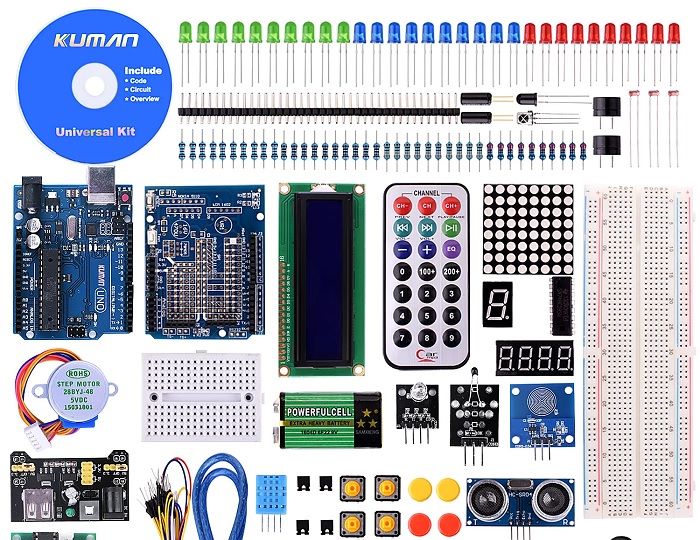
While the Kuman’s kit does not have some of the advanced components you’d find in other Arduino kits such as a joystick, RFID modules, and displays, it contains an array of tiny cheap components which you can replace easily. Thus Kuman’s can serve as an additional starter kit for you when you just need the basic components for an assembly, while ensuring it doesn’t cost a fortune.
5. SunFounder Starter Kit for Arduino
Most Arduino beginners focus on projects with Arduino Uno which is way more popular than the other boards. Understanding their needs and expectations, SunFounder has introduced a starter kit specific for Uno learners only but the MEGA2560 Controller Board is a plus. It has over 250 high quality components which can build 42 complete projects. While you get only one LCD panel, there are additional components for numeric display. There is everything else you would need such as a joystick, an infra-red receiver for IR blaster requirements, a servo, an ultrasonic ranging module, and a remote.
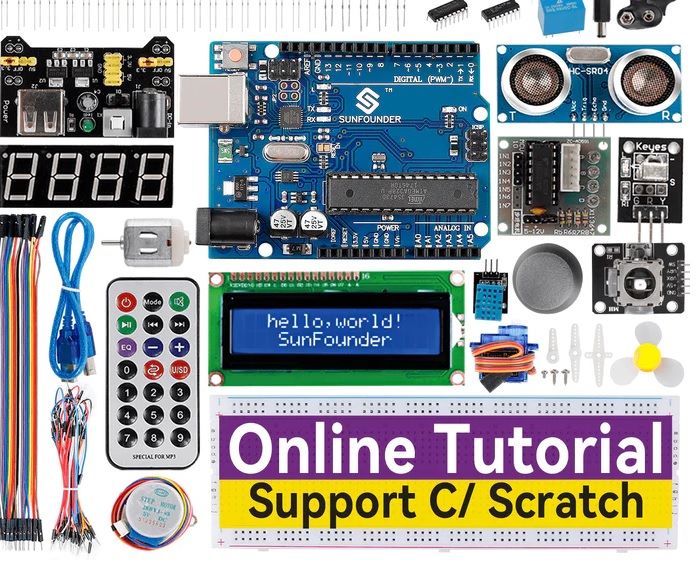
The SunFounder Starter kit also costs less than $40 which makes it extremely economical for first time learners. All the projects are taught through online tutorials. Before you start building, you get a full overview of each project learning modules, and there is a thriving community of SunFounder to get support for your projects. There are also YouTube tutorials from the community.
Frequently Asked Questions
How much time does it take to learn Arduino starter kits?
If you just bought a simple Arduino starter kit, it should take anywhere from 3 weeks to 2 months to familiarize with the basics and build your own projects. To start with, you will need to learn how to power on an Arduino device properly.
Where can I find replacement for Arduino starter kits?
While you can get replacement for Arduino starter kits on their official websites, once you’ve got the hang of Arduino, you can also go for a cheaper Arduino replacement pack available on the official website.
Where can I find Arduino starter kits manuals and example code?
You can check for a lot of Arduino starter kits online. But there is this handy manual and examples code guide by Elecrow which is well-illustrated for beginners, and may help you get started quickly.
Image credit: Heiko from Pixabay.
